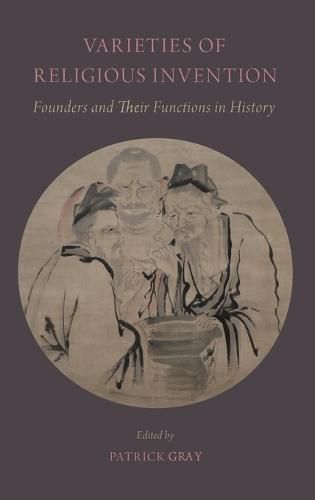Readings Newsletter
Become a Readings Member to make your shopping experience even easier.
Sign in or sign up for free!
You’re not far away from qualifying for FREE standard shipping within Australia
You’ve qualified for FREE standard shipping within Australia
The cart is loading…






At the origins of the major religious traditions one typically finds a seminal figure. Names such as Jesus, Muhammad, Confucius, and Moses are well known, yet their status as founders has not gone uncontested. Does Paul deserve the credit for founding Christianity? Is Laozi the father of Daoism, or should that title belong to Zhuangzi? What is at stake, if anything, in debates about the historical Buddha? What assumptions are implicit in the claim that Hinduism is a religion without a founder? The essays in Varieties of Religious Invention do not attempt to settle these perennial arguments. Rather, they consider the subtexts of such debates as an exercise in comparative religion: Who engages in them? To whom do they matter, and when? To what extent are origins thought to define the essence of a religion? When is development in a religious tradition perceived as deviation from its roots? In what ways do arguments about founders serve as proxies for broader cultural, theological, political, or ideological questions? What do they reveal about the ways in which the past is remembered and authority negotiated? Surveying the landscape shaped by these questions within each tradition, the authors provide insights and novel perspectives about the individual religions, and about the study of world religions more generally.
$9.00 standard shipping within Australia
FREE standard shipping within Australia for orders over $100.00
Express & International shipping calculated at checkout
Stock availability can be subject to change without notice. We recommend calling the shop or contacting our online team to check availability of low stock items. Please see our Shopping Online page for more details.
At the origins of the major religious traditions one typically finds a seminal figure. Names such as Jesus, Muhammad, Confucius, and Moses are well known, yet their status as founders has not gone uncontested. Does Paul deserve the credit for founding Christianity? Is Laozi the father of Daoism, or should that title belong to Zhuangzi? What is at stake, if anything, in debates about the historical Buddha? What assumptions are implicit in the claim that Hinduism is a religion without a founder? The essays in Varieties of Religious Invention do not attempt to settle these perennial arguments. Rather, they consider the subtexts of such debates as an exercise in comparative religion: Who engages in them? To whom do they matter, and when? To what extent are origins thought to define the essence of a religion? When is development in a religious tradition perceived as deviation from its roots? In what ways do arguments about founders serve as proxies for broader cultural, theological, political, or ideological questions? What do they reveal about the ways in which the past is remembered and authority negotiated? Surveying the landscape shaped by these questions within each tradition, the authors provide insights and novel perspectives about the individual religions, and about the study of world religions more generally.